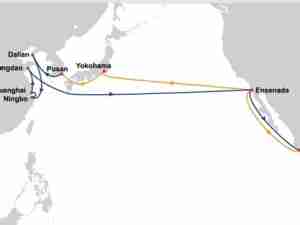Container giant Maersk Line appoints GAC for husbandry services in Hong Kong
posted by AJOT | Jul 08 2015 at 08:57 AM | Liner Shipping
GAC Hong Kong to handle more than 1,000 vessel calls per year
Hong Kong - The world’s largest container shipping company, Maersk Line, has appointed GAC to provide husbandry services for its vessels calling at Hong Kong.
Maersk Line is part of the Maersk Group, headquartered in Copenhagen, Denmark. It operates 608 container vessels and has 374 offices in 116 countries. The company employs 7,100 seafarers and 25,500 land-based employees.
Under the two-year contract, which commenced on 1 July 2015, GAC will handle more than 1,000 calls by Maersk Line and MCC vessels per year at all ports and terminals in Hong Kong.
“We chose GAC to handle our husbandry requirements in Hong Kong based on its established track record in ship agency, marine and crew transportation in South China, as well as our shared corporate ethos of delivering on promises of performance,” says Danny Chen, Director Procurement, Far East Asia Liner Operations Cluster of Maersk Line (China).
Thomas Okbo, GAC Hong Kong’s Managing Director adds: “When Maersk Line wanted to outsource its husbandry operation in Hong Kong, we put together a dedicated team to handle the account, in close cooperation with four professionals from their husbandry team. With more than 40 years of agency experience in Hong Kong, we have what it takes to meet their needs.”
Decline and rebound
Hong Kong ranked as the world’s fourth largest container port with a throughput of 22.3 million TEUs in 2014. In 2015, however, container throughput year-on-year declined, dropping by double digits in March 2015. The port’s handling capacity has been impacted by a number of factors including greater deployment of mega container vessels, a substantial rise in river barge traffic, as these are favoured over inland transportation for the movement of cargo containers and the port’s increasing reliance on international transshipments.
Nonetheless, Okbo remains optimistic that container throughput will rebound and that Hong Kong will see a moderate growth in the near future. “Hong Kong will continue to be one of the world’s thriving container ports,” he says. “With enhanced port handling capacity, I expect the throughput to turn around, which will in turn boost the demand for our shipping services.”







